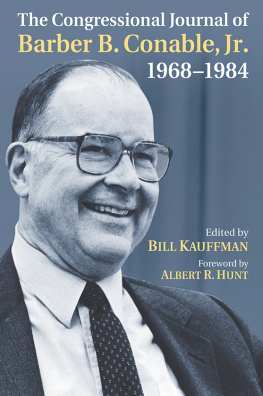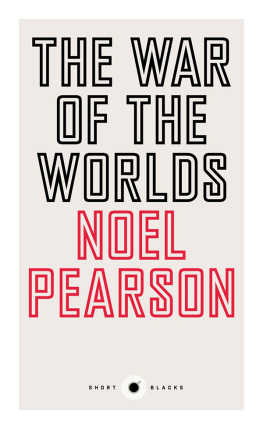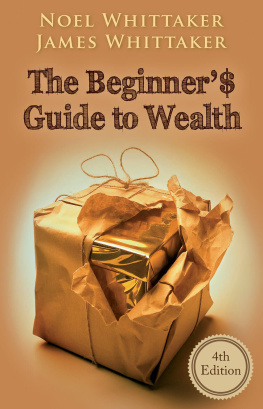Noel Barber - A Woman of Cairo
Here you can read online Noel Barber - A Woman of Cairo full text of the book (entire story) in english for free. Download pdf and epub, get meaning, cover and reviews about this ebook. year: 2013, publisher: ePub Bud (www.epubbud.com), genre: Non-fiction. Description of the work, (preface) as well as reviews are available. Best literature library LitArk.com created for fans of good reading and offers a wide selection of genres:
Romance novel
Science fiction
Adventure
Detective
Science
History
Home and family
Prose
Art
Politics
Computer
Non-fiction
Religion
Business
Children
Humor
Choose a favorite category and find really read worthwhile books. Enjoy immersion in the world of imagination, feel the emotions of the characters or learn something new for yourself, make an fascinating discovery.
- Book:A Woman of Cairo
- Author:
- Publisher:ePub Bud (www.epubbud.com)
- Genre:
- Year:2013
- Rating:5 / 5
- Favourites:Add to favourites
- Your mark:
- 100
- 1
- 2
- 3
- 4
- 5
A Woman of Cairo: summary, description and annotation
We offer to read an annotation, description, summary or preface (depends on what the author of the book "A Woman of Cairo" wrote himself). If you haven't found the necessary information about the book — write in the comments, we will try to find it.
A Woman of Cairo — read online for free the complete book (whole text) full work
Below is the text of the book, divided by pages. System saving the place of the last page read, allows you to conveniently read the book "A Woman of Cairo" online for free, without having to search again every time where you left off. Put a bookmark, and you can go to the page where you finished reading at any time.
Font size:
Interval:
Bookmark:
www.hodder.co.uk
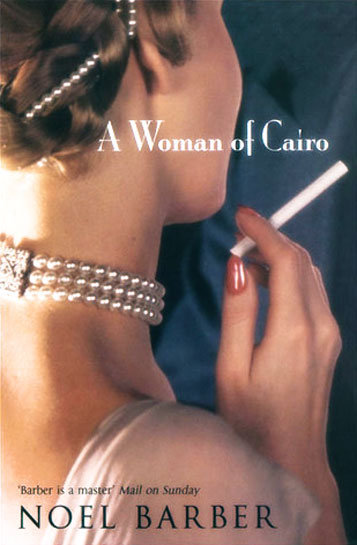
Life seemed so wonderful to all of us in those happy days in Cairo.
We lived in what I suppose you might call luxury, in our white house, with its lawns leading to the Nile at the end of our grounds, while the broad avenues of the city itself were lined with shops, hotels with dance bands, the Gezira Club with its polo and golf and swimming.
We were so happy that is the word that springs to mind as we grew up Serena, the most beautiful of them all, the daughter of an Egyptian Copt; Greg, my brother, who married her; Teddy Pollock, the self-confessed playboy all friends who would dance the nights away after desert rides to the Step Pyramid at Sakkara or midnight swims at the Mena House. Then there was Aly, Serenas brother, and his friends Gamal Nasser, the earnest young student, and Anwar Sadat, the eager debater
Were so many of us blind because we didnt see the other side of life the thousands of beggars, the heaps of refuse, the indescribable poverty? Our parents hardly seemed to notice. My father, the Egyptian Adviser, loved everything about the country, as did Serenas father, Sirry Pasha. Yet did they never realise the debauchery into which King Farouk eventually sank, or never comprehend the sinister motives of his ADC, General Osman Sadik?
I wonder sometimes whether the splendour of Egypt blinded us to the real facts of life, in much the same way as the servile smile of an Arab anxious to sell a scarab to a British Tommy masked a hatred of the foreign oppressor. But then Cairo was a city of intrigue which cast a spell over all of us. Beautiful and brown, selfish yet tolerant, it beguiled us, and the soft breezes from the Nile lulled us into a sense of false security.
I remember once, when I was very young, my father holding me as we watched the trams overflowing with passengers and I was even more fascinated by the shining tram-lines glinting in the sun. I asked Father where they led.
Like everything else in Cairo, he said. Round and round in circles, to everywhere and nowhere.
When I look back, life seems first to have come into focus one hot Cairo afternoon in 1919 when Serena was barely a year old and I was ten.
I was too young really to understand why, earlier in the day, our tranquil life had been unaccountably replaced by worried parental frowns, anxious clucking by Mother, grunts of exasperation by Father, furtive looks from the servants. At the age of ten I felt that my father should explain the sudden tensions, the occasional noisy reports that sounded like cars backfiring.
Father, you told me the other day that Egypt is a Protectorate, I had asked. Why are the Egyptians so cross with us if we are protecting them?
Perhaps they dont want to be protected, he said, adding cryptically, The pots boiling over.
Dont leave the grounds on any account, Mother interrupted, and made me promise.
He couldnt go out anyway, Father pointed out. Martial laws been proclaimed. And that means theyll shoot on sight.
Cant I even go to Garden City? I exclaimed. On the other side of the road there was a playground in the area known by that name, a beautiful section with many fine buildings, including embassies. It wasnt as beautiful as our grounds, but it had one advantage: we could play with other children, under supervision. But as I dont have to look after Greg? I asked; for my younger brother was in the Anglo-American Hospital having his tonsils out.
Hell be back in a couple of days, promised my father. Then well go to the Garden playground, Mark.
Holt House, as our house was known, was huge, as befitted the home of the Egyptian Adviser. Long and low, the reception rooms lay on either side of the Long Gallery which ran from one end of the house to the other. One side gave on to the short drive from the Garden City entrance, the other, with equally wide handsome double doors halfway along the gallery, faced on to the lawns and the Nile beyond.
The house had been built when Turkish influence on Egyptian architecture was still pronounced, and this accounted for the space of the grounds, the lofty rooms, and above all our favourite room for playing when children.
This was the Turkish music room, an appendage to the main rectangular building, built by a Turkish architect. It was not only soundproof but had a stage, and at the rear, high up and with no stairs visible, a gallery with a metal lattice screen where in the old days the ladies of the harem, using the back stairs, could climb up and watch, unseen, as the men below listened to the music.
It was the perfect place for hide and seek, but today there was no one to hide and no one to seek. I was bored. Suddenly there were more sharp noises and I ran out into the garden. Coming towards us was Madame Sirry, who lived in the next house to ours and which was almost as large. A wicket gate separated our two properties. She strode through the gate together with the year-old Serena and a nanny.
Could we come in until the dins stopped? I heard her ask my parents. My husband is at the Abdin Palace and took Aly with him he likes to play in the guardroom with the soldiers while his father has an audience with the sultan.
Aly was the five-year-old son of Madame Sirry, who, French by birth, had married Sirry Pasha, a rich Copt, and a close friend and adviser to the sultan, Fuad. My father called Sirry a member of the palace clique, and I knew that Father often discussed Anglo-Egyptian problems with him.
Of course, cried Father as my mother walked across the large green lawns. I have to go soon, but youll stay for lunch, eh?
Serena, the Sirry baby, was in her pram, and the nanny, a young Egyptian girl named Fathia, from the Sirrys estate in the Nile Delta, was rolling her eyes with fear.
Dont be silly, said Madame Sirry, not unkindly to the nanny. Youll be safe in this garden. You watch over Serena, understand? The girl nodded dumbly. I heard Madame Sirry whisper to Mother, I came because the servants have panicked. They dont want to be involved, in case Egyptians are ordered to attack the British. So stupid!
Of course you must stay for lunch, Mother soothed her, while Father continued to prepare to leave for the High Commissioners office. Mother and Madame Sirry with me, of course joined Father in the study, and Mother asked in her vague sort of way, Oh dear! They do enjoy making a fuss! Whats it about this time?
My father loved explaining things and he had great patience, especially with my mother. Zaglul is the leader of Egypts National Party, he began. Ive always found him good mannered, but he is a fervent nationalist, and all this nonsense started after the war, when President Wilson made his fourteen-point declaration of self-determination. He went on, Zaglul says it applies to Egypt just like any other country. I agree in principle, but only when the moment is ripe. But what did the Foreign Office mandarins do? They arrested Zaglul and booted him off to Malta. That will only cause more trouble.
Father was right. Student demonstrators had already started rampaging through the streets, smashing up tramcars in Cairo, with women students often leading the attacks, bringing the city to a standstill. Already eight British soldiers had been killed by mobs.
When Father left, my mother suggested to Madame Sirry that the two of them go into the sitting room for coffee, adding to me, You go and play in the garden. And keep an eye on Serena.
But Fathias there.
Maybe shes more frightened than you are, Mark, Madame Sirry smiled at me. I trust you. Youll be Serenas protector.
Font size:
Interval:
Bookmark:
Similar books «A Woman of Cairo»
Look at similar books to A Woman of Cairo. We have selected literature similar in name and meaning in the hope of providing readers with more options to find new, interesting, not yet read works.
Discussion, reviews of the book A Woman of Cairo and just readers' own opinions. Leave your comments, write what you think about the work, its meaning or the main characters. Specify what exactly you liked and what you didn't like, and why you think so.

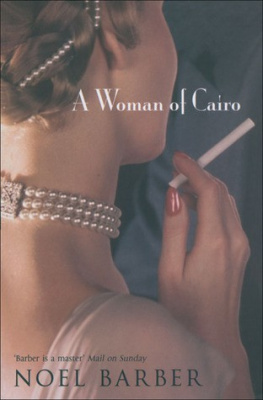
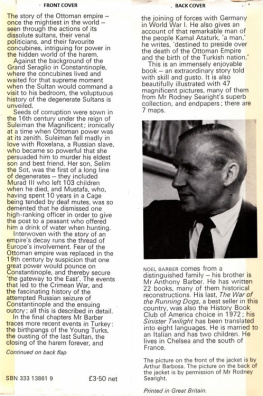
![Mendi Kuk - A Very Austen Noel [Anthology]](/uploads/posts/book/931765/thumbs/mendi-kuk-a-very-austen-noel-anthology.jpg)


